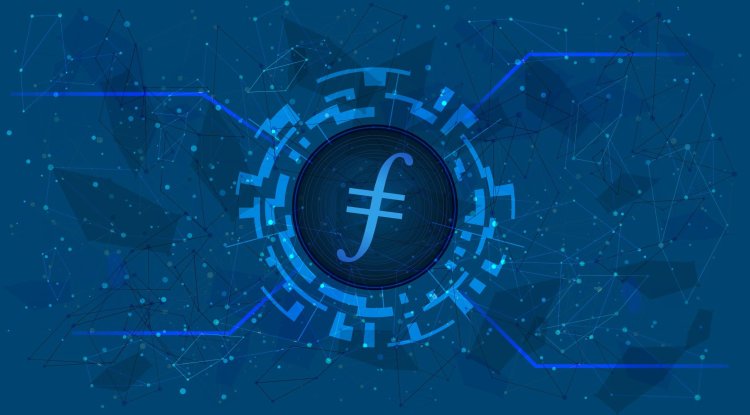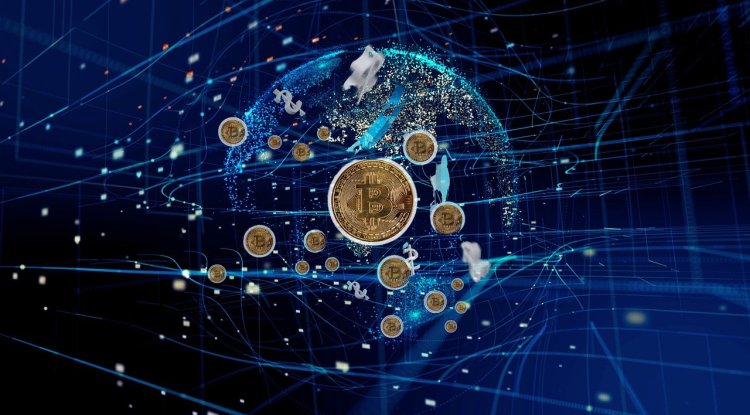What is Filecoin and FIL token cryptocurrency?
Filecoin is a bit like Dropbox, but it is powered by blockchains. Users who want to save some data on the Filecoin network have to pay the miner.

Filecoin is a cryptocurrency that aims to encourage a global network of computer operators to provide file sharing and storage services. The founders of the project claim that, if enough people adopt it, it could become the fastest and cheapest way to store data on the Internet. Moreover, he would not rely on the central government, which means that governments or other actors cannot censor the exchange of his files.
This is because Filecoin is maintained by miners who dedicate computing power to providing a budget that makes it functional. Filecoin miners are paid to make storage space available to customers. Filecoin users must pay the miners to store, download or distribute this data.
The Filecoin network operates on top of another protocol for decentralized file handling, called the Interplanetary File System (IPFS). The two systems have many similarities, although the main difference is that IPFS is free to use, IFPS will not make money for miners. Filecoin requires money for use, but can also generate revenue.
However, investors and traders should note that Filecoin is not the only protocol that claims to offer decentralized file storage and sharing system powered by cryptocurrency. Competitive protocols include Storj and Siacoin. Storj claims to have reached a network capacity of over 100 petabytes, while Siacoin reports a network capacity of 2 petabytes from 2020. However, Filecoin is perhaps the most anticipated of these cryptocurrencies, raising $205.8 million in the initial coin offering in 2017, one of the largest funding rounds in the industry. How does Filecoin work?
Filecoin is a bit like Dropbox, but it is powered by blockchains. Users who want to save some data on the Filecoin network have to pay the miner. How much they will pay is determined by the open market in which miners compete with each other to offer the lowest price for data storage. Filecoin claims that this market will be “hypercompetitive” and therefore cheaper than centralized data storage, such as Amazon Web Services, Cloudflare and other companies that deal with such services.
The miners, in turn, have an incentive to secure the warehouse, because in that way they have the opportunity to receive prizes from the network in the form of Filecoin tokens. The more storage space the network offers, the better the chances of winning a prize. But these prizes are not free. Miners must perform several computer-intensive processes (called evidence) to prove to the network that they store the data they claim to store and that they do so reliably over a period of time.
If they do so reliably and provide enough storage space, then they can create new blocks on the Filecoin chain block and receive a network reward as well as transaction fees. Proof-Replication and Proof-of-Spacetime
Blockchains rely on mechanisms called evidence to ensure that all network users can agree on new transactions. The Bitcoin blockchain, for example, relies on proof of operation, where a miner must show that he has performed a huge number of calculations in order to gain the right to add new transactions to the blockchain and claim the right to mint bitcoin.
Filecoin is using two new pieces of evidence to confirm that miners are actually storing data they claim to have. Evidence of replication shows that the miner did indeed preserve the number of copies of the data he claims to have. Proof-of-time shows that the miner kept the data for an agreed period of time. Together, this evidence allows users to believe that miners are indeed holding the data they claim to possess. File warehouse markets
Using these technologies, Filecoin will offer a disk storage market, where users who want to store data can bid for available memory, offered by miners with their disk space. Miners who deliver disk space will also be evaluated based on their reliability, as well as the cost of the storage space they offer. Filecoin’s storage market will be similar to the financial market, where users can make offers and ask for offers. Filecoin Mining
Generally speaking, Filecoin miners are users who offer disk space. This means that any user can plug in a hard drive, run Filecoin software and start offering disk space in the storage market. These miners are known as warehouse miners.
But there is another category of Filecoin miners, known as Retrieval Miners and Services. Users of this miner pay to download data and perform services that speed up data transfer, such as caching or participation, as a node in the content delivery network. How many Filecoin (FIL) coins are in circulation
Protocol Labs describes Filecoin’s tokenomics, or economic model, as a “data market” where users can sell their storage space to other users who want to rent it. Five stakeholders will be able to trade tokens: developers, customers, miners, token owners and ecosystem partners. According to the Labs protocol, there will also be three Filecoin markets: data warehousing, data retrieval and stock exchange token trading.
In the fall of 2020, 400 miners participated in the “Space Race” testing phase, increasing Filecoin’s network data capacity by over 325 petabytes; approximately 3.5 million FIL tokens will be released to space race participants. At the time of writing, the number of FIL tokens in circulation is just over 100 million FIL coins. This is, at the moment, a total offer. The maximum bid has not been announced yet. Where you can buy FIL
You can buy fil at cryptocurrency exchanges such as Gate.io, Binance, Huobi global, Coinbase, Kraken, KuCoin and others.





































